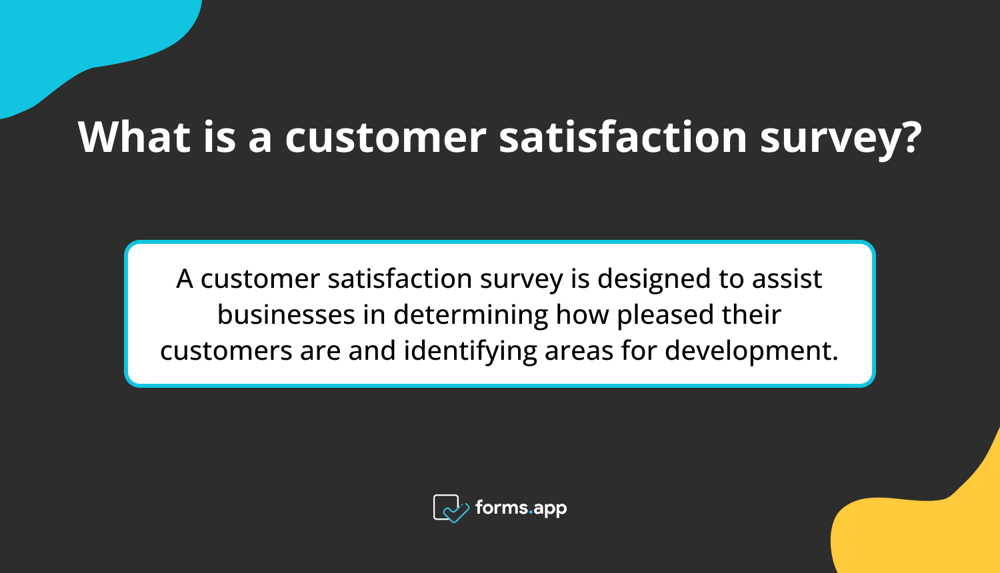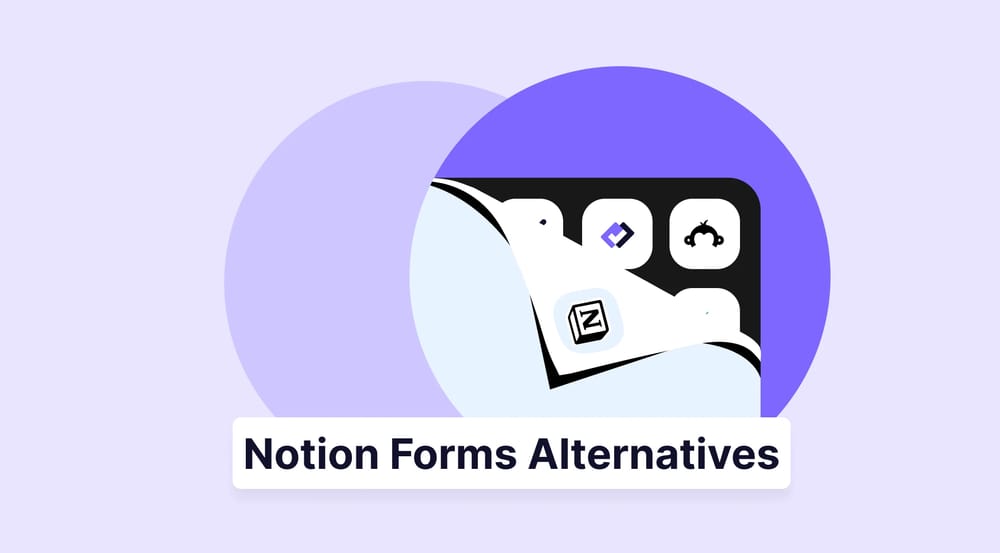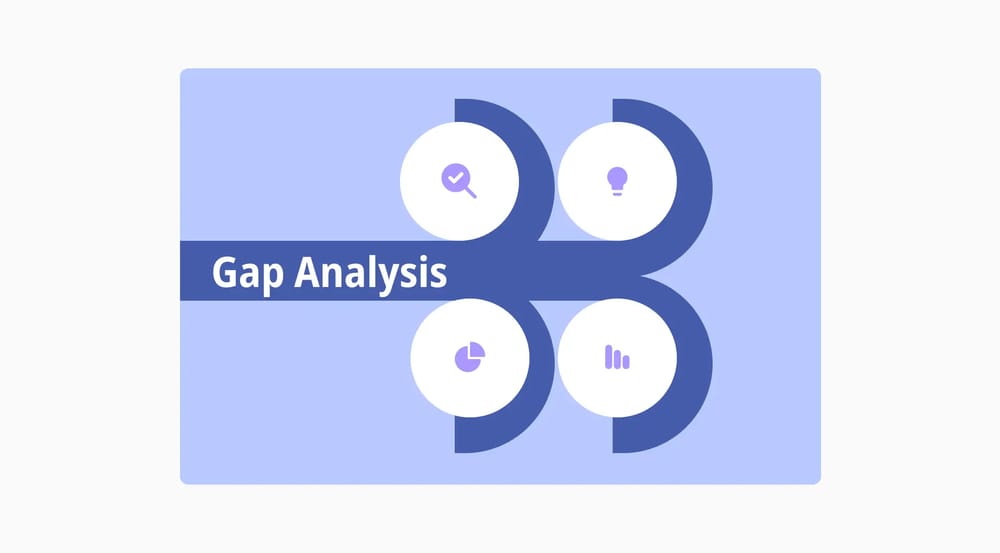Customer satisfaction is an important part of every business since it directly influences a company's performance and reputation. It refers to how pleased and satisfied consumers are with the items or services they have received from a company. A high degree of customer satisfaction may lead to improved loyalty, repeat business, and, eventually, better profitability.
Businesses must focus on these elements and seek to create outstanding customer experiences at all touchpoints to achieve high levels of customer satisfaction. One of these methods is to create effective customer satisfaction survey questions in order to obtain feedback. In this post, we'll look at 25 questions as an example, as well as customer satisfaction, questionnaires in general.
What is a customer satisfaction survey?
Customer satisfaction surveys are a must-have tool for organizations trying to boost customer happiness and enhance profits. Businesses may make informed decisions that result in improved customer experiences and increased loyalty by gathering and evaluating feedback and gaining insight from their consumers.
A customer satisfaction survey is designed to assist businesses in determining how pleased their customers are and identifying areas for development. The survey results may be utilized to make data-driven decisions that improve customer experience and loyalty.

The definition of customer satisfaction survey
25 customer satisfaction survey questions to use in your questionnaire
By asking the correct questions, you may acquire useful insights into what your consumers think about your product or service and find areas where you can improve to promote customer loyalty and retention. Below, we'll provide 25 customer satisfaction survey questions that you can include in your questionnaire to better understand your customers' experiences and how you can better serve them.
Ask the right questions if you're going to find the right answers.
Essential customer satisfaction questions
Essential questions include Net Promoter Score (NPS), Customer Satisfaction Score (CSAT), Customer Effort Score (CES), Customer Service and Support (CSS), and Churn Rate questions. The churn rate is the percentage of customers who ceased using your product or service during a specific time frame.
1 - How likely are you to suggest our product/service to a friend or colleague on a scale of 0 to 5? (Opinion scale) - NPS survey question
2 - How satisfied were you with our product/service? (Star rating) - CSAT survey question
3 - How easy was it to use this service/product? (Star rating) - CES survey question
4 - Did our customer service representatives provide you clear and straightforward guidance and explanations? Describe the procedure you followed. (Long text) - CSS survey question
5 - Have you had any problems or troubles with our product/service that led to your decision to cancel? (Short text) - Churn rate survey question
Consider the many stages of the customer journey as well as the questions you may ask to have a better understanding of the customer experience at each stage.
Overall satisfaction questions
Companies frequently utilize overall satisfaction questions as a key performance indicator (KPI) because they provide a comprehensive measure of customer satisfaction that can be tracked over time.
6 - Did our product/service meet your expectations? (Yes/No)
7 - How would you rate the reliability of our product/service? (Star rating)
8 - How pleased are you with our company's level of communication? (Opinion scale)
9 - If you had the opportunity to visit, what can you tell us about the physical situation of our company? (Long text)
10 - What could we do to improve your overall experience with our company? Please describe suggestions. (Long text)
If you want your customers to express themselves freely and get more comprehensive answers, you can add open-ended questions.
Product/service-specific questions
A product/service-specific question is a type of customer survey question that focuses on a particular component or feature of a product or service. Imagine you run a business that produces and sells computers. You need to know what your consumers think about the laptop batteries they use. You may use a customer survey to ask a question about a specific product or service to collect this data.
11 - How often do you encounter problems or issues while using the product/service? (Single selection)
12 - Was it easy to use the product/service? (Yes/No)
13 - What is your level of satisfaction regarding the product/service? (Star rating)
14 - What is your opinion about our products/services in comparison with competitor companies? (Long text)
15 - Was the cost of our item or service reasonable, given the value it offers? (Yes/No)
You can use visual aids such as pictures to help customers better understand the product or service they are asking about. This can help them provide more accurate and detailed feedback.
Customer support questions
Customer support survey questions can cover a variety of issues, such as the responsiveness of the customer support team, the quality of the assistance offered, the professionalism and competence of the representatives, and the overall efficacy of the support process.
16 - What is the best customer service you've ever received? (Long text)
17 - Did the customer service professional treat you with dignity? (Yes/No)
18 - Did you have easy access to customer support? (Yes/No)
19 - For which problem did you contact customer support? (Short text)
20 - Was your issue resolved in a timely manner? (Yes/No)
When consumers leave poor reviews, use conditional questions to ask for contact details and get in touch with them to see if you can fix the problem. This indicates your dedication to providing top-notch support and can help change a negative situation into a positive one.
Feedback and improvement questions
Businesses can pinpoint areas for improvement and implement changes that will improve the customer experience and boost customer loyalty by gathering input from consumers through these survey questions.
21 - Was there anything you found particularly disturbing during your experience with our company? (Long text)
22 - In your opinion, what is the one thing our website is missing? (Short text)
23 - Would you like to buy products/services from us again? (Yes/No)
24 - What type of content would you like to see from us in the future? (Multiple selection)
25 - What are the most important factors to you when purchasing a product/service like ours? (Long text)
Ask questions that will yield answers that you can use to make decisions. Avoid posing questions that are too broad or ambiguous.
How to write better customer satisfaction survey questions
Customer satisfaction surveys are an important tool for determining how effectively your company meets the demands of its consumers. Designing successful survey questions that provide actionable insights, on the other hand, might be difficult.
Incorrect data and missed opportunities for improvement might result from poorly crafted survey questions. In this part, we will discuss best practices and strategies for developing better customer satisfaction survey questions. By adhering to these criteria, you may build surveys that provide important input, assist you in identifying areas for improvement, and ultimately boost client happiness and loyalty.
- Ask simple and clear questions: You should keep your questions simple and avoid using sophisticated language or terminology that may confuse your consumers.
- Keep the survey short and easy to complete: An easy-to-complete survey that doesn't need too much of the customer's time will get more responses. Customers are more likely to submit feedback if the process is simple and quick, and a shorter survey is less likely to seem burdensome.
- Use an effective survey maker such as forms.app: In forms.app website you can find customer satisfaction survey templates and start your survey easily.
- Take advantage of the conditional logic feature of the forms.app: Conditional logic (also known as branching or skip logic) simplifies and improves your form by concealing questions that are irrelevant to certain replies. You can add conditional rules to form fields.
- Include a mix of question types: A combination of multiple-choice, rating scale, and open-ended questions can help you collect both quantitative and qualitative data. You can ensure customers interact with your business.
- Avoid questions that are overly personal or invasive: Customers have the right to privacy, and asking overly intimate or invasive questions might make them feel uncomfortable or violated. Businesses may demonstrate to their clients that they value their privacy by avoiding such requests and building trust.
- Employ language that matches your brand's tone and personality: This will make your customers feel more at ease and engaged when answering your survey questions.
- Test your survey before implementing: Testing a survey with a small group of respondents can provide feedback on the survey design and help identify areas that need customer based improvement.
Conclusion
Finally, customer satisfaction surveys are an important tool for organizations to use in gathering useful insights from their consumers. Companies may reveal pain spots, find areas for development, and ultimately raise customer happiness by asking the right questions. It's crucial to remember that customer demands and tastes are continuously changing, so conducting surveys on a frequent basis is essential for remaining current and retaining a competitive advantage.
Creating a survey, on the other hand, might be a difficult endeavor, especially if you are unclear about what questions to ask. That's why we've put up this list of 25 outstanding customer satisfaction survey questions to get you started. Always employ a combination of open-ended and closed-ended questions to gain a balanced picture of your customers’ experiences. You can enhance customer satisfaction and eventually drive company success by listening to your customers and implementing adjustments based on their opinions.
forms.app, your free form builder
- Unlimited views
- Unlimited questions
- Unlimited notifications



